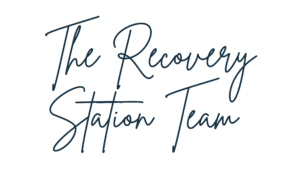Language is fundamental to human connection – it helps us to communicate, learn, express and engage with one another, and the world around us. For many, the importance of speech becomes clear only when it’s lost.

Speech pathologists help individuals regain their ability to communicate, often using cutting-edge technologies like Artificial Intelligence (AI).
What is AI?
AI refers to machines that mimic human cognitive functions like reasoning, learning, problem-solving and creativity. Many of us interact daily with AI through tools like Siri, Alexa, and Google Maps.
How is AI used in Speech Pathology?
AI is making strides in speech and language therapy, offering innovative solutions such as voice banking, which preserves voices for individuals who may lose their ability to speak.
This is particularly beneficial for those who may lose their voice or have had it altered due to conditions like ALS, Parkinson’s disease, stroke-related speech impairments and neurological diseases.
AI can also enhance speech therapy through tools like Automatic Speech Recognition (ASR), which is trained on vast amounts of speech data. ASR systems can be tailored to recognise specific speech patterns, improving their accuracy by learning from a person’s unique voice.
These efforts aim to create more natural-sounding synthetic voices and enhance voice cloning technologies, providing clients a life-changing opportunity to be heard and understood again.
Should we be concerned about AI?
Some critics see AI as the most groundbreaking invention of our time, while others fear its potential effects on humanity. However, AI, like any other technology, is a tool—much like an audiometer for audiologists.
AI augmentation, in which humans and machines collaborate, has great potential in various fields, impacting almost every aspect of society and culture. By working alongside SLPs, AI can optimise treatment plans, improve accuracy, and provide more personalised care.
What’s Recovery Station’s stance on AI and Speech Pathology?
At Recovery Station, our Speech Pathologists help to establish meaningful goals alongside our clients, which guides treatment and outcomes.
Human connection is fundamental to our delivery of this therapy. We assess individual needs to create treatment options and targets.
We do see the benefits of, and use AI, in the process of supporting our clients. As it’s an ever-evolving tool, we use AI in a considered way to support goals and processes.
Ultimately, we believe technology should enhance, not replace, the critical human touch in therapy.
For more information, call us on 1300 588 851.
Until next time,

